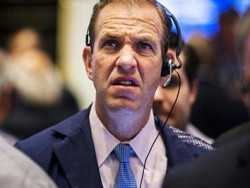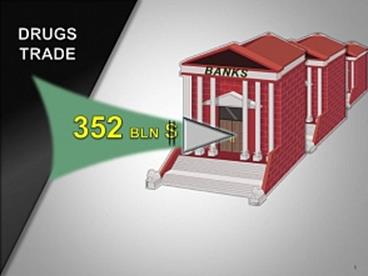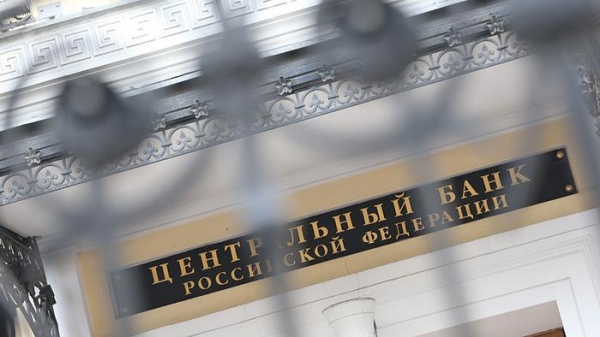
Over the past decade the world’s Central banks had to endure a lot, if in early 2008 – they were the saviors of the countries from the global crisis, in 2016, about them began to speak as about the obstacle to further economic growth.
As noted in his article on Project Syndicate, the former head of the London school of Economics Howard Davies, in a short time, the Central Bank expects the continuation of these reputational “amerikanka slides.
Central banks the last decade lived like a roller coaster, changing their images from heroes to outcasts and back. Begins a new round in their position and reputation?
In 2006, when Alan Greenspan retired after his 18-year reign as Chairman of the Board of governors of the Federal reserve system of the United States, his reputation, probably, hardly could be higher. It regulated the us economy during the boom times of the dot-com and bankruptcies, ably administered it during the potential threat to the growth of the economy from the terrorist attacks of September 11, 2001, and presided in a period of rapid GDP growth and labour productivity. At the last he meeting of the Board Timothy Geithner, then President of the new York Federal reserve, read a Eulogy about what a stellar reputation Greenspan in the future likely will increase, but not decrease.
Just three years later, the Nobel laureate economist Paul Krugman, borrowed the figure of a parrot from the television Comedy group Monty Python, said that Greenspan was the ex-Maestro, whose reputation has died. In the early years of this century, the Central banks, as it was noticed everywhere, was dozing in the conduct of its operations. They allowed global imbalances to grow, quietly looked at the huge swollen credit bubble, did not pay attention to the flashing danger signs in the mortgage market and uncritically admired the innovation, but by toxic products created by investment bankers jammed.
The primary reaction of Central banks to the deepening crisis were also uncertain. The Bank of England (BoE) lectured on moral hazard, while the collapsing banking system and the European Central Bank continued to battle with imaginary dragons of inflation, while almost all economists saw much greater risks in the collapse of the Eurozone and associated with this collapse of the credit crisis.
And yet, despite these failures, after governments worldwide have considered how best to respond to the lessons of the crisis, the Central banks, which have previously been part of the problem, came to be regarded as the main element in the solution of this problem. Central banks were given new powers to regulate the financial system and encouraged them serious policy intervention to prevent depression and deflation.
The balance sheets of Central banks has expanded significantly, and new laws are extremely strengthened the position of banks. In United States law the Dodd-Frank introduced the Federal reserve system in the financial system, which she never handled, and she had been given the authority to take possession of and to eliminate loss-making banks.
In the UK, banking regulation, taken from the Bank of England in 1997, was returned to him in 2013, and the Bank of England also took under the supervision of the insurance companies that greatly expanded his powers. The European Central Bank, in turn, is now a direct observer in more than 80 % of the banking sector of the European Union.
Over the past five years, Central banking has become one of the fastest growing sectors of the economy in the West. Central banks seem to have revenge on his critics and become the triumphant victors. Their innovative and sometimes controversial actions have helped the recovery of the global economy.
But now, there are signals that this success can be ambiguous consequences. Indeed, some Central bankers are beginning to worry that their role has expanded too much, placing them in a zone of negative backlash.
There are two interrelated dangers. The first lies in the title of a recent book Mohamed El-Arian, “the Only game in town”. Central banks were expected to take most of the burden of post-crisis regulation. Their major purchases of assets, the life support system of financial Economics. Still they can’t solve the basic problems of global imbalances and a huge debt of Fund securities. In fact, they can prevent the adoption of corrective measures, financial or structural, which are required to overcome obstacles to economic recovery.
This is particularly evident in Europe. While the European Central Bank (ECB) supports the Euro afloat, making it “at any cost” in the words of ECB President Mario Draghi, governments do little. Why do they need to make hard decisions, if the ECB continues to introduce more and stronger doses of the drug from its safe?
The second danger version of what is sometimes called the problem of “sverhkachestvennoy citizen.” Not too many of the powers given to the Central banks, taking into account their own favor?
The issue of quantitative easing. Since this question blurs the line between monetary and fiscal policies, he must, of course, be subject to the regulation of elected governments, and this leads to growing discontent. We see signs of this discontent in Germany, where many are asking: but not too influential, independent and unaccountable ECB? A similar criticism motivates those groups in the US who want to “audit the fed” that often conceals a desire to translate monetary policy under the oversight of Congress.
There are also concerns about financial regulation from Central banks and especially the shiny new tools of macroprudential supervision. In his new book “the End of alchemy”, the former Governor of the Bank of England Governor Mervyn king argues that direct intervention in the mortgage market by restricting loans must be subject to political decisions.
Other leaders, in particular Axel Weber, the former head of the Bundesbank, expects the direct leadership of the banks by the Central Bank. If things in the financial markets will go wrong, blame the Supervisory authorities. There is a risk of infection and loss of confidence in monetary policy if the Central Bank is on the front lines.
These fears cause everyone great concern. Monetary policy independence of Central banks is a hard-won prize. This independence of the Central Bank has given great benefits to our economic system. But if the institution buys bonds with the use of public funds, decides on the availability of mortgage Finance and liquidate banks with big losses for their shareholders, then they need a different form of political accountability.
The danger is that hasty post-crisis solutions for the laying of additional functions for the Central banks can have unintended and undesirable consequences. In particular, an increase in political control over these functions might have an impact on monetary policy. So no matter what new accountability mechanisms will be introduced, they should be designed with extraordinary attention.








